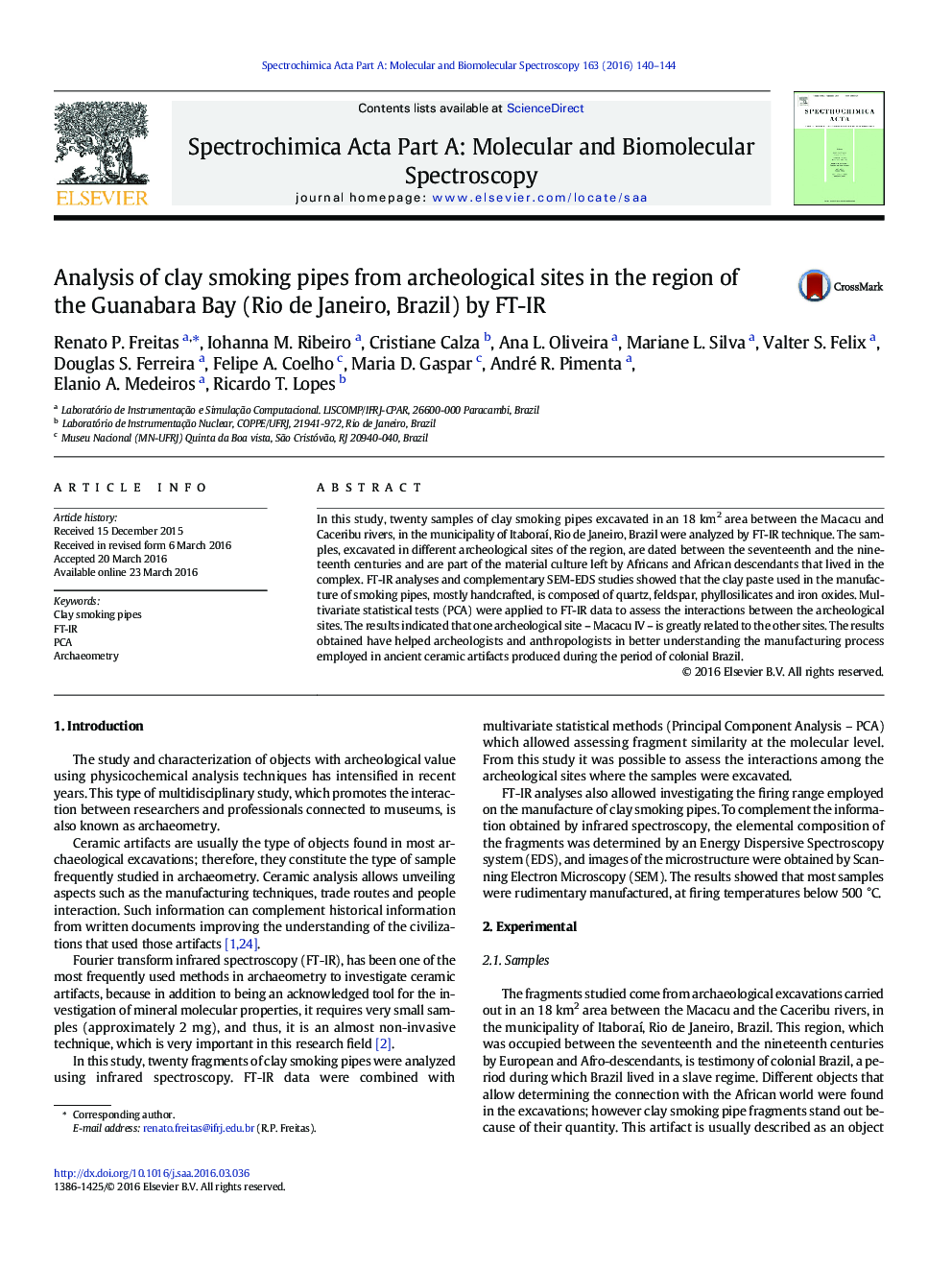| Article ID | Journal | Published Year | Pages | File Type |
|---|---|---|---|---|
| 1231372 | Spectrochimica Acta Part A: Molecular and Biomolecular Spectroscopy | 2016 | 5 Pages |
•Clay smoking pipes•Analysis of ceramic artifact by FT-IR•FT-IR data applied to the PCA.
In this study, twenty samples of clay smoking pipes excavated in an 18 km2 area between the Macacu and Caceribu rivers, in the municipality of Itaboraí, Rio de Janeiro, Brazil were analyzed by FT-IR technique. The samples, excavated in different archeological sites of the region, are dated between the seventeenth and the nineteenth centuries and are part of the material culture left by Africans and African descendants that lived in the complex. FT-IR analyses and complementary SEM-EDS studies showed that the clay paste used in the manufacture of smoking pipes, mostly handcrafted, is composed of quartz, feldspar, phyllosilicates and iron oxides. Multivariate statistical tests (PCA) were applied to FT-IR data to assess the interactions between the archeological sites. The results indicated that one archeological site – Macacu IV – is greatly related to the other sites. The results obtained have helped archeologists and anthropologists in better understanding the manufacturing process employed in ancient ceramic artifacts produced during the period of colonial Brazil.
Graphical abstractFigure optionsDownload full-size imageDownload as PowerPoint slide
